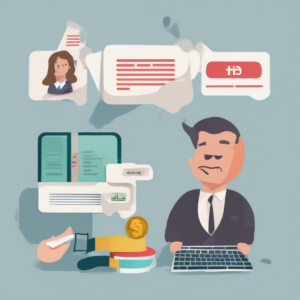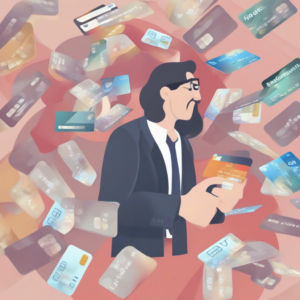Unlock Financial Freedom: Your Guide to the Best Personal Loans for Debt Consolidation
Debt consolidation can be a powerful tool to simplify your finances and potentially save you money. By combining multiple debts into a single, manageable loan, you can streamline your payments, lower your interest rates, and regain control of your financial future. However, choosing the right personal loan for debt consolidation is crucial. This comprehensive guide will walk you through the key factors to consider, helping you find the best loan to suit your specific needs and circumstances.
Understanding Debt Consolidation Loans
A debt consolidation loan is a personal loan you use to pay off other debts, such as credit card balances, medical bills, or payday loans. The lender provides you with a lump sum of money, which you then use to settle your existing debts. You then make a single monthly payment to the lender, typically at a lower interest rate than your original debts, simplifying your repayment process.
The benefits of debt consolidation are numerous:
- Simplified Payments: Instead of juggling multiple payments, you only have one monthly payment to track.
- Lower Interest Rates: A consolidated loan often comes with a lower interest rate than high-interest credit cards, potentially saving you significant money over time.
- Improved Credit Score: Managing a single debt effectively can help improve your credit score, especially if you consistently make on-time payments.
- Predictable Budgeting: A fixed monthly payment makes budgeting easier and more predictable.
- Potential for Faster Repayment: Depending on the interest rate and loan term, you may be able to repay your debt faster.
However, it’s important to be aware of potential drawbacks:
- Higher Total Interest Paid (in some cases): While you may have a lower interest rate, a longer loan term could result in paying more interest overall.
- Impact on Credit Utilization: Closing existing credit accounts could temporarily lower your credit score if it significantly impacts your credit utilization ratio.
- Risk of Further Debt Accumulation: If not managed carefully, you could fall into the trap of accumulating more debt after consolidating.
Factors to Consider When Choosing a Debt Consolidation Loan
Selecting the best debt consolidation loan requires careful consideration of several factors:
1. Interest Rate
The interest rate is the most critical factor. A lower interest rate translates to lower monthly payments and less interest paid over the loan’s life. Shop around and compare interest rates from multiple lenders to find the best deal. Consider both APR (Annual Percentage Rate) and any associated fees.
2. Loan Term
The loan term is the length of time you have to repay the loan. Shorter loan terms mean higher monthly payments but less interest paid over the life of the loan. Longer loan terms mean lower monthly payments but higher overall interest costs. Choose a term that aligns with your budget and repayment capabilities.
3. Fees
Be aware of any associated fees, such as origination fees, prepayment penalties, or late payment fees. These fees can add to the total cost of the loan, impacting your savings. Look for lenders with transparent fee structures and minimal fees.
4. Lender Reputation and Reliability
Research the lender’s reputation and financial stability. Check online reviews, ratings from reputable organizations, and ensure the lender is licensed and compliant with all relevant regulations.
5. Loan Amount
Determine the total amount of debt you need to consolidate. Ensure the loan amount is sufficient to cover all your existing debts, plus any fees. Avoid borrowing more than necessary.
6. Repayment Flexibility
Consider whether the lender offers flexible repayment options, such as the ability to make extra payments or adjust your payment schedule if needed. Flexibility can be valuable if your financial situation changes unexpectedly.
7. Your Credit Score
Your credit score significantly impacts the interest rate and terms you’ll qualify for. A higher credit score typically results in more favorable loan offers. Check your credit report before applying for a loan to identify any errors and take steps to improve your score if necessary.
Types of Debt Consolidation Loans
Several types of loans can be used for debt consolidation:
- Personal Loans: These are unsecured loans, meaning they don’t require collateral. They often offer competitive interest rates and flexible terms.
- Balance Transfer Credit Cards: These cards allow you to transfer balances from other credit cards, often with a promotional 0% APR period. However, be mindful of balance transfer fees and the interest rate after the promotional period expires.
- Home Equity Loans or Lines of Credit (HELOCs): These loans use your home’s equity as collateral. They often have lower interest rates than personal loans but carry the risk of foreclosure if you default on the loan.
Each type of loan has its advantages and disadvantages. The best option depends on your individual financial situation and risk tolerance.
Where to Find the Best Debt Consolidation Loans
Several avenues exist for finding the best debt consolidation loan:
- Banks and Credit Unions: These institutions often offer competitive rates and personalized service. However, their approval requirements might be stricter.
- Online Lenders: Online lenders offer convenience and a wide range of loan options. However, it’s crucial to research their reputation and legitimacy carefully.
- Debt Consolidation Companies: These companies specialize in helping people consolidate their debt. They can offer guidance and assistance with the application process. However, be aware of potential fees and ensure the company is reputable.
It is strongly recommended to compare offers from multiple lenders before making a decision. Use online comparison tools to streamline this process.
Steps to Take Before Applying for a Debt Consolidation Loan
Before applying for a debt consolidation loan, take these crucial steps:
- Check your credit report: Identify any errors and address them to improve your credit score.
- Calculate your debt: Determine the total amount of debt you need to consolidate, including interest and fees.
- Compare loan offers: Compare interest rates, fees, and loan terms from different lenders.
- Create a budget: Develop a realistic budget to ensure you can afford the monthly payments.
- Read the fine print: Carefully review the loan agreement before signing to understand all terms and conditions.
Taking these steps will increase your chances of securing a favorable loan and successfully consolidating your debt.
Managing Your Debt After Consolidation
Successfully consolidating your debt is only half the battle. Effective management is crucial to avoid falling back into debt:
- Make on-time payments: Consistent on-time payments are essential for maintaining a good credit score and avoiding late fees.
- Avoid accumulating new debt: Resist the temptation to take on new debt while repaying your consolidated loan.
- Track your progress: Regularly monitor your loan balance and payments to stay on track.
- Consider extra payments: If possible, make extra payments to reduce the principal balance and shorten the loan term.
- Seek professional help: If you’re struggling to manage your debt, seek guidance from a credit counselor or financial advisor.
By following these steps, you can effectively manage your debt after consolidation and achieve long-term financial stability.
Conclusion (Omitted as per instructions)





